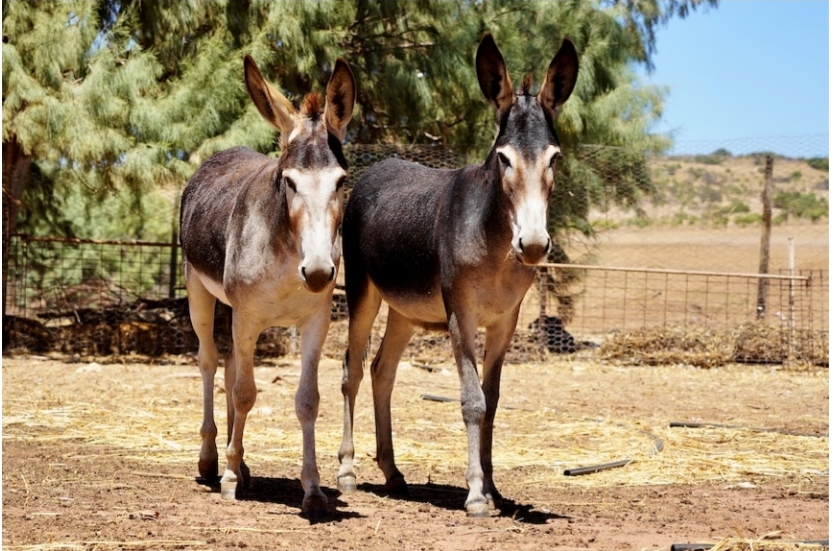Chinese Demand soars for donkeys Meat whereas as Australian livestock owners seek them out to protect their stock
A decline in the global donkey population and surge in their popularity amongst livestock owners has seen the price of asses skyrocket.
Donkeys have become a popular addition to mobs of sheep as guardians against predators, and to cattle as peacekeepers to prevent fighting.
West Australian livestock agent Phil Petricevich said prices for donkeys had soared.
“In the past 18 months we’ve seen a big jump in prices,” he said.
“It started off at around about $600 to $700 a donkey, then a couple of sales ago I think it reached $2,500 for a good young jenny.”

Livestock agent Phil Petricevich says donkeys are currently fetching top dollar in the saleyards.
“It was just such a rapid rise in pricing that it caught a lot of us by surprise. Fingers crossed (prices) can be maintained.”
Mr Petricevich said donkeys were worth about $60 a head as pet meat about three years ago.
The donkeys are mainly sourced from the pastoral region, where large numbers are regarded as vermin in the rangelands as they cause environmental damage and compete with native animals and livestock for feed.
Guardians of sheep and lambs
Geraldton farmer Ben Royce said dog attacks on his sheep were costing more than $10,000 each year, and he hoped the addition of two female donkeys to his sheep flock would help deter dogs from entering his paddocks.
“We’ve got paddocks that are quite close to town at the back of Geraldton, dogs are coming out and not maliciously wanting to kill animals but they’re playing with the sheep and one thing is leading to another,” he said.
“It’s not nice go out and check the sheep and there are dead bodies everywhere.
“Last year we lost 70 lambs and 10 ewes, and a lot of them they weren’t actually killed they were mauled, so we had to put them out of their misery ourselves.”
Mr Royce paid $3,000 for his pair, but he said they would cover their cost if they stopped some sheep from being killed.
“We looked at a few different options and donkeys seemed to be the most reliable, they can look after themselves and are quite friendly to humans,” he said.

Increased demand from livestock owners, and a global shortage of donkeys, has seen prices in WA skyrocket.
While donkeys as pets and guardian animals is a limited market, global demand for donkeys is also up.
Mr Petricevich said the global donkey population had declined due to demand for donkey skins in China.
“It’s called ejiao, there is a belief that the skin has medicinal powers, and the donkey population worldwide has crashed, the Chinese population is down by over two thirds, they just can’t get enough donkey meat and particularly skin,” he said.
By Joanna Prendergast




